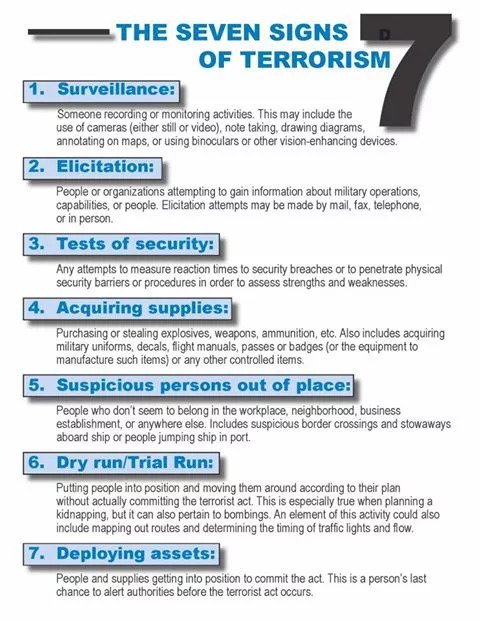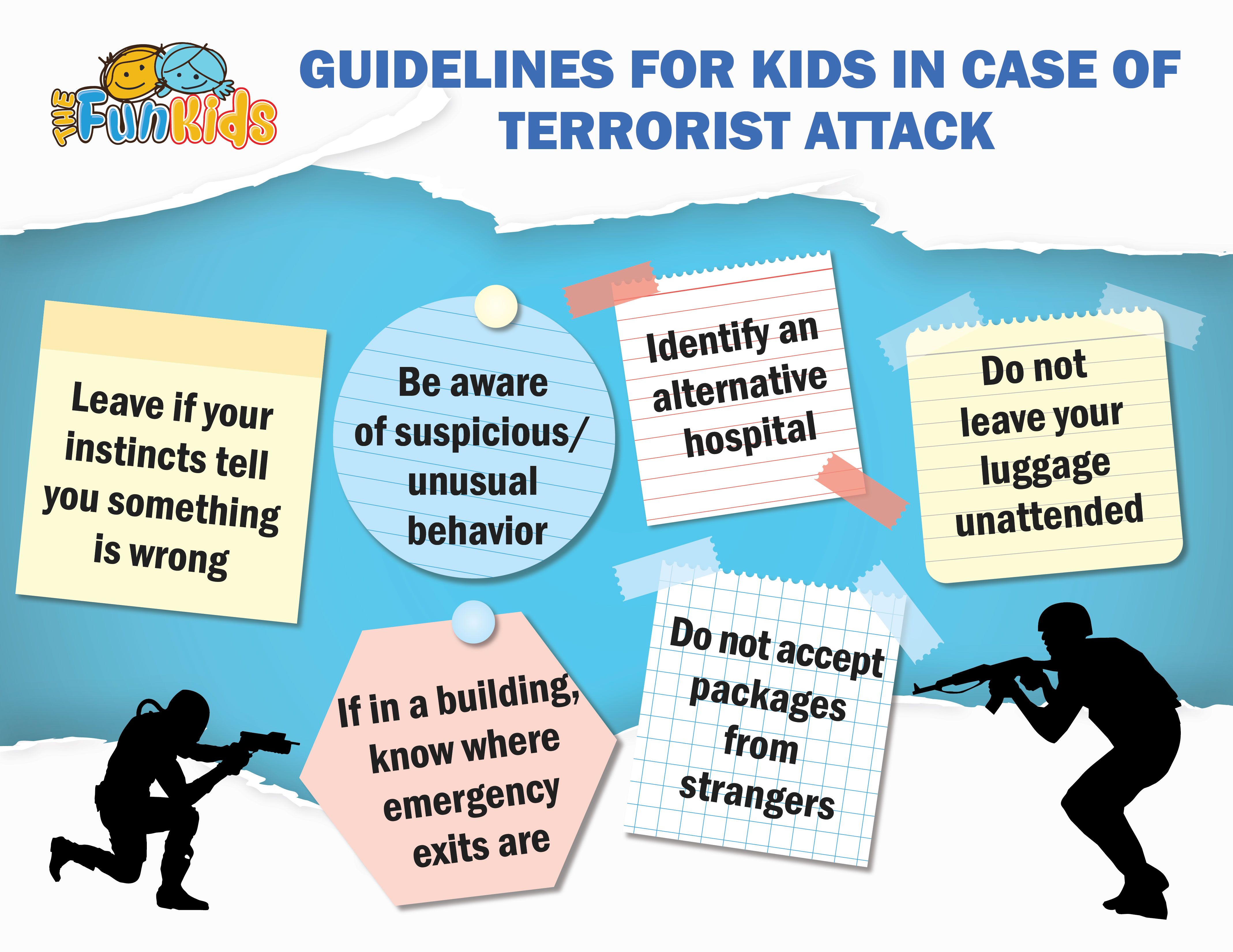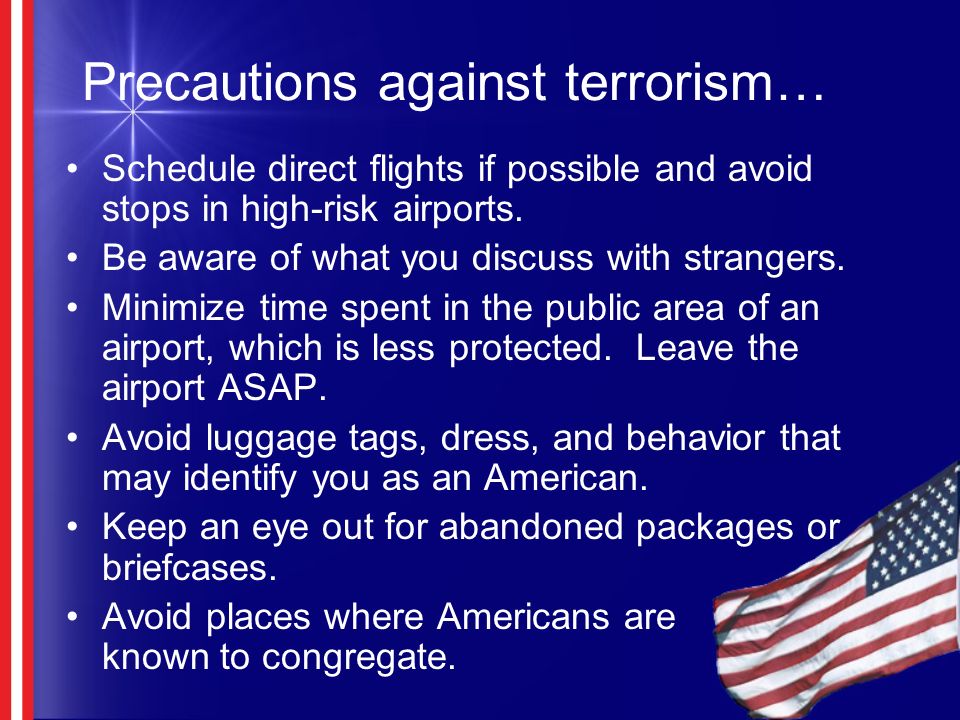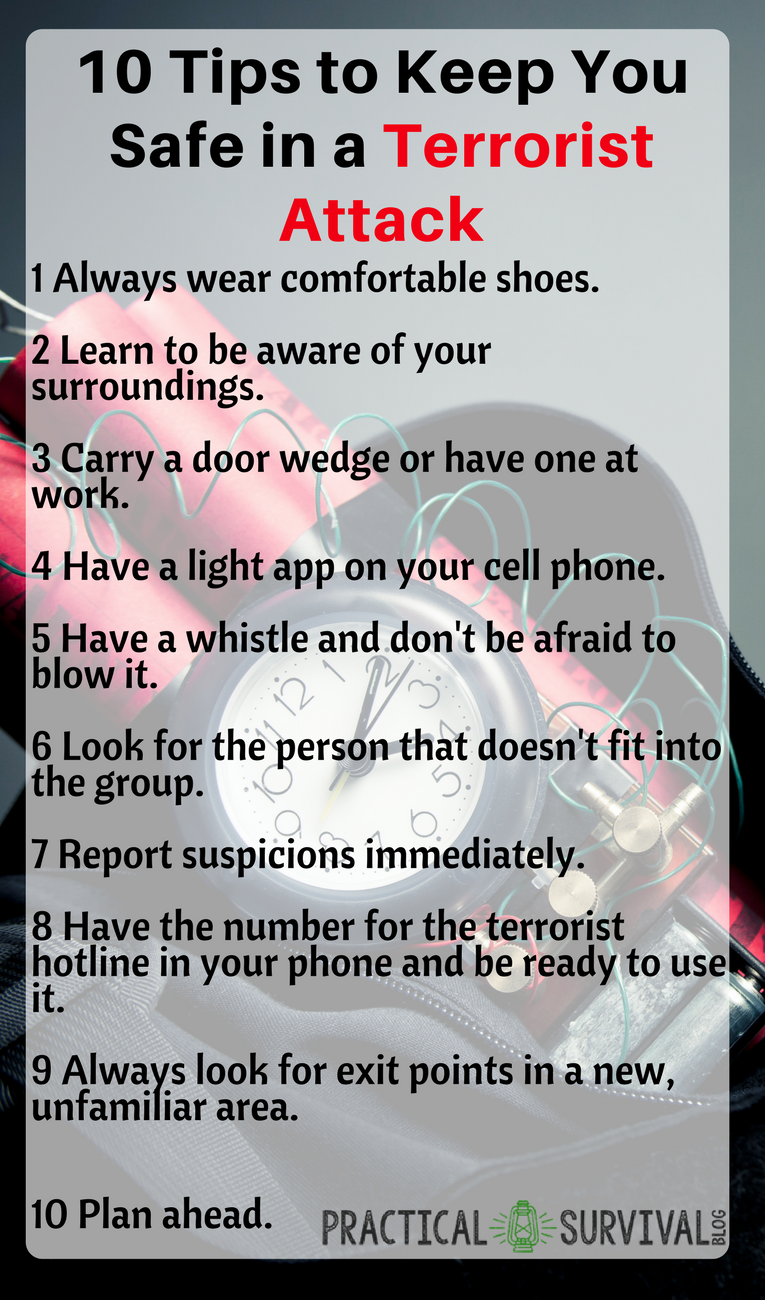How to prepare for violence:
BEFORE A VIOLENT ATTACK: PREPARE
- Create an emergency communication plan with your family. Choose an out-of-town contact your family or household will call for refuge during the time of attack.
- Establish a meeting place. If you need to evacuate your home or are asked to "shelter in place," having some essential supplies on hand will make you and your family more comfortable. Prepare a disaster supplies kit in an easy-to-carry bag.
- If you need to evacuate your home or are asked to "shelter in place," having some essential supplies on hand will make you and your family more comfortable.
- Copies of essential documents-like powers of attorney, birth and marriage certificates, insurance policies, life insurance beneficiary designations and a copy of your will-should also be kept in a safe location outside your home. A safe deposit box or the home of a friend or family member who lives out of town is a good choice.



